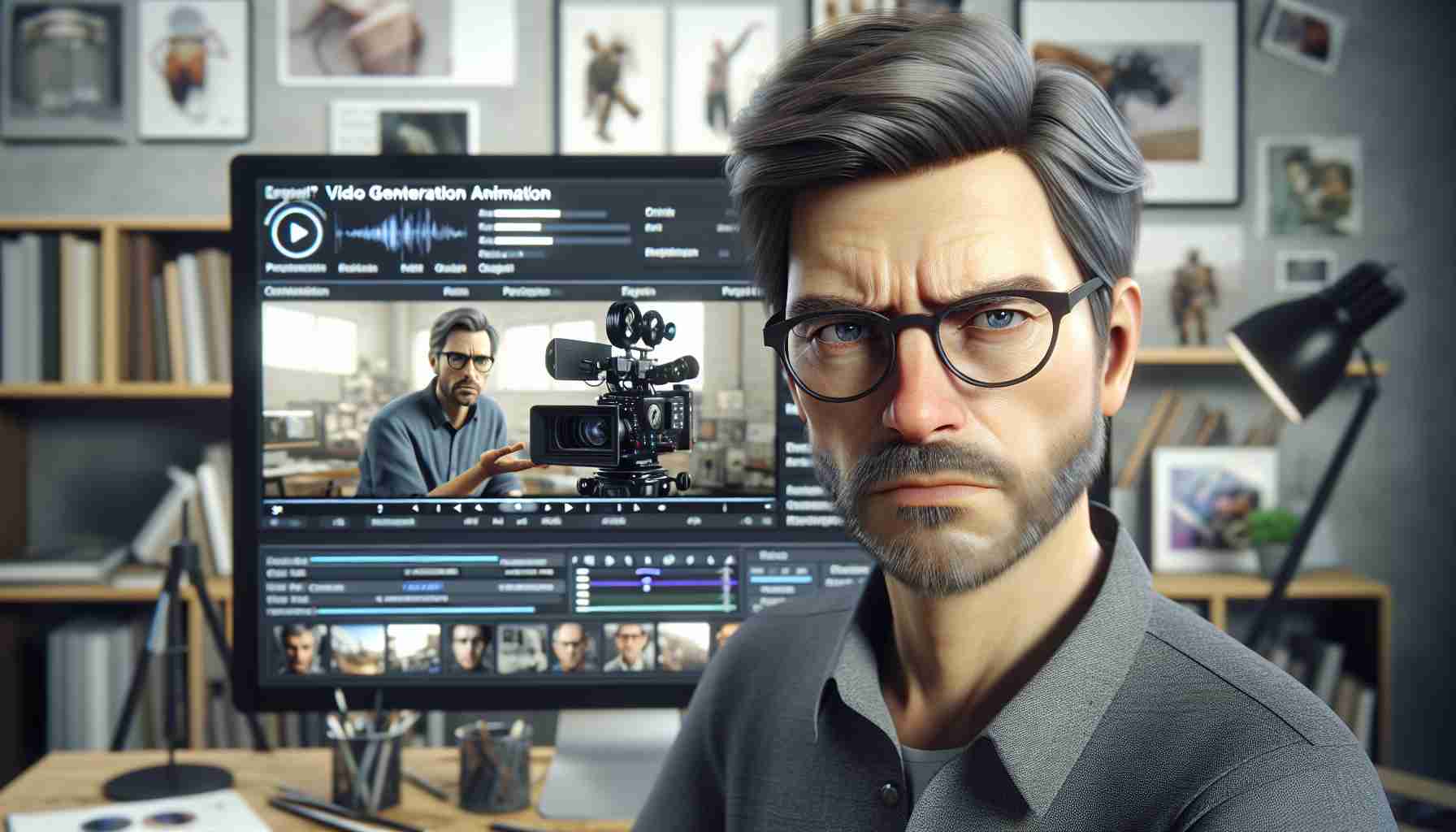An ex-Pixar animator has expressed doubts about current AI video generation tools used in the film industry. While new innovations like OpenAI’s Sora, a text-to-video engine, are intriguing with their 60-second video production capabilities using simple text prompts, these tools have significant limitations when it comes to revising the content.
Creating a movie, especially in animation, is an iterative process. Filmmakers often tweak and adjust scenes to perfection. The animator in question, Craig Good, pointed out that with current AI tools, making precise adjustments like those commonly done at Pixar is not yet feasible. He reminisced about his time at Pixar, where even the smallest changes to scenes—a common practice—required direct and controlled adjustments.
Good’s insider perspective reveals that while AI can create imagery based on instructions, the inability to make major revisions means these tools have a way to go before being able to meet the rigorous demands of movie production. However, he remains optimistic as he compares today’s AI developments to the early stages of computer graphics in the 1980s, suggesting that this is just the start of a long journey for AI in filmmaking.
Despite the current shortcomings, there is a sense of potential in the air—a sense that as AI tools evolve, they might one day revolutionize the movie-making process, just as computer graphics have done in the past.
The skepticism from the former Pixar animator Craig Good towards AI video generation tools in cinema highlights some important questions and challenges in the field. Here are the key points:
Key Questions and Answers:
– What are the current limitations of AI video generation tools? The main limitations are the lack of precision and control in revisions, and the inability to match the complex, iterative workflow of traditional animation and film production.
– Can AI video generation fully replace human animators in the future? As of now, it is unlikely AI can fully replace human animators due to the unique creative insights and hands-on adjustments required in the process. However, AI may become a valuable tool to assist animators.
– What technological advancements are necessary for AI video generation to meet the industry standards? Improvements in AI’s learning algorithms, user interfaces that allow for detailed adjustments, and enhancements in understanding and replicating nuanced artistic expressions are needed.
Key Challenges and Controversies:
– Artistic Integrity: There is debate over whether AI can truly replicate the artistic creativity that human animators bring to a project, or if it will lead to a homogenization of style.
– Ethical Concerns: There are concerns about job displacement in the animation and film industry as AI tools improve.
– Technical Limitations: Current AI technology may lack the subtlety and intricate control required for high-quality, detailed animations.
Advantages and Disadvantages:
– Advantages:
– AI can significantly speed up the video production process, particularly for generating draft concepts and storyboards.
– Lower costs and accessibility for independent filmmakers and small studios.
– AI can assist in mundane and repetitive tasks, allowing human animators to focus on more creative aspects.
– Disadvantages:
– Potential loss of jobs and diminishing value of human animator skills.
– Current AI lacks the ability to understand the context and emotional subtleties that a human animator would naturally infuse into their work.
– Dependence on AI might deter from the traditional skill development in animation and filmmaking.
For further information on AI and its applications in various domains, you might consider these relevant and reputable sources, provided they continue to be accessible and trustworthy:
– OpenAI
– Pixar
Remember that the landscape of AI is constantly evolving, so newer sources and ongoing research would be essential for the latest developments.
The source of the article is from the blog windowsvistamagazine.es

